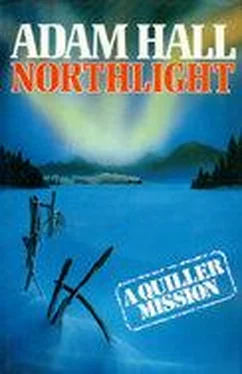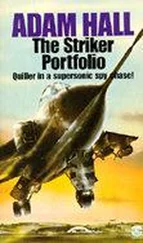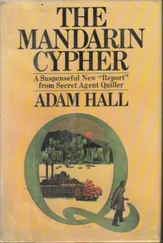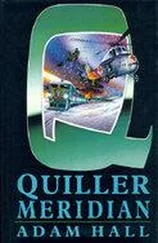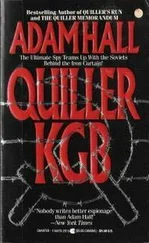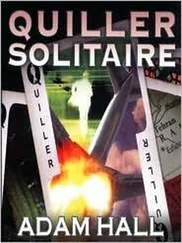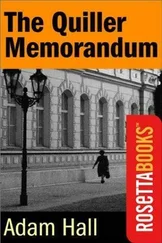Adam Hall - Northlight
Здесь есть возможность читать онлайн «Adam Hall - Northlight» весь текст электронной книги совершенно бесплатно (целиком полную версию без сокращений). В некоторых случаях можно слушать аудио, скачать через торрент в формате fb2 и присутствует краткое содержание. Жанр: Шпионский детектив, на английском языке. Описание произведения, (предисловие) а так же отзывы посетителей доступны на портале библиотеки ЛибКат.
- Название:Northlight
- Автор:
- Жанр:
- Год:неизвестен
- ISBN:нет данных
- Рейтинг книги:4 / 5. Голосов: 1
-
Избранное:Добавить в избранное
- Отзывы:
-
Ваша оценка:
- 80
- 1
- 2
- 3
- 4
- 5
Northlight: краткое содержание, описание и аннотация
Предлагаем к чтению аннотацию, описание, краткое содержание или предисловие (зависит от того, что написал сам автор книги «Northlight»). Если вы не нашли необходимую информацию о книге — напишите в комментариях, мы постараемся отыскать её.
Quiller is "the greatest survival expert among contemporary secret agents." (The New York Times)
Adam Hall is "skillful as ever at stretching suspense to the screaming point." (Publishers Weekly)
Northlight — читать онлайн бесплатно полную книгу (весь текст) целиком
Ниже представлен текст книги, разбитый по страницам. Система сохранения места последней прочитанной страницы, позволяет с удобством читать онлайн бесплатно книгу «Northlight», без необходимости каждый раз заново искать на чём Вы остановились. Поставьте закладку, и сможете в любой момент перейти на страницу, на которой закончили чтение.
Интервал:
Закладка:
'Bratchenko? This is Demichev, Headquarters.'
My papers were all right. I knew that. It's never a danger: the Bureau prides itself on certain things and that's one of them. The danger is always that these people are all-powerful, and they could simply take me from here to a cell with a barred door and play with me until I made a mistake, and when I made the mistake it wouldn't matter how hard the British ambassador tried to get me out: he wouldn't succeed.
You don't of course make any mistakes while you're fresh in from the street and on your toes and ready to go through with the whole thing as a technical exercise; but after a few hours of bright lights and shouting you begin to get worried and that's when you can make your first mistake and that one is going to be all they'll need because they'll seize on it and put you through the hoop until you make another one and then you're done for, finis.
I would very much like to have stayed in my comfortable hotel and let them think I hadn't noticed anything, but that would have been dangerous, more dangerous than coming along here and facing them on their own ground. To show them that I was prepared for a room search at any given time would be to blow my own cover.
'No, he's just making a formal complaint.' He looked up at me with a smooth swing of his head — he reminded me of the pictures I'd seen of Eichmann: a soft, delicate face with the eyes of a predator. 'Was there anything missing?'
'Missing?'
'From your room.'
'I don't think so.'
'Don't you know?'
'I didn't pay much attention. I was so annoyed that I came straight along here.'
Under the subheading Caver in my briefing papers someone had written a quite amusing bit about the British journalist: He is typically polite, a degree arrogant — as befits a scion of perfidious Albion — but often tests the authority of the host country, even be it the Soviet Union, by demanding fair treatment and respect. Indignation is expected by the law enforcement, bureaucratic and secret police agencies from any British journalist placed in an annoying or embarrassing situation. The objective is to exasperate the officers of these agencies to the point of giving you what they demand, offering their apologies or simply kicking you out without pressing whatever charges may have been laid.
'The complainant is very annoyed,' the captain said into the telephone, and had the courtesy to keep his face straight while I heard a faint laugh from the other end. I should have liked him for that, but I didn't. He had his role to play just as I did. He'd been trained in the new school of the Komitet Gosudarstvennoy Bezopasnosti to show foreign visitors — especially journalists, who would be writing it up when they got home — an official image of courtesy, authority and efficiency. This didn't mean that if he found anything wrong with my papers or I made some kind of mistake he wouldn't order me into an interrogation room and get enough out of me to send me to a forced labour camp for ten years, and the fact that he'd be doing something perfectly understandable in protecting his country from the activities of an espionage agent wouldn't do anything to soften the guards' clubs or break the ice in the buckets or give me more than a bowl of watery gruel with only the roaches in it to crunch for protein.
'Please show me your papers.' He leaned forward slightly with the phone still to his ear and took them from me. I'd already shown them to the guard at the desk outside but I couldn't refuse. He studied them, taking his time.
'Clive Gage,' he said into the telephone. 'He is in Room 45 at the Hotel Leningrad.' He waited, occupying himself by gazing at my papers, turning them to the light with his eyes narrowing slightly: I think he was simply trying to frighten me, but he did it well.
Please tell me what is happening.
The prime minister had a reputation for phoning people before they could phone her.
As far as me know, ma'am, Karasov is still somewhere in Murmansk. We've now placed our agent there to bring him across the moment he makes contact. We also have a lead that should enable us to do this before very long.
That wouldn't satisfy her but she wasn't aware of the difficulty. There was only one, but it was a facer. Karasov wouldn't make contact.
The 'lead' was of course Tanya Kiselev. I suppose they could call her that. London knew their sleeper well enough to be sure that if he was more likely to go to anyone else for shelter, they'd know about it, and instruct me accordingly. But the longer time went on and he didn't surface, the more difficult it was going to be. A shadow executive or a cutout or a courier would break for a frontier within an hour of closing down his mission and he'd expect instant help and he'd get it — I'd brought three of them across like that, earning one down a mountainside into Bavaria and throwing another into a meat truck on the drug route across the Isonzo Bridge and shoving a third man into a plane in Topolovgrad with a bullet still in his shoulder blade but a lot of life left in him and a photocopy schedule of the Warsaw Pact military exercise still taped round his leg. It's difficult work but it's fast and you don't have to rely on signals or changes of plan from London: you just make your run and bring him with you and there isn't time to think about frontier rifle-fire or airfield security forces or sirens in the night — you're running hard and you can only keep up the pace by going into Zen, and it works, it really works, because the instant you switch off and leave it to the alpha waves you're moving into a protection zone where you can do things that would otherwise kill you off.
But with a sleeper it's different. He's like a mole, deep underground, and when he surfaces he finds the light too bright and it frightens him and he's liable to go back and stay low for a while. In the case of Karasov the temptation to do this was greater than usual: from the moment he was reported missing, the KGB would have started a massive search — they'd already been looking for the man who'd copied the tape of the submarine kill and he was the obvious target.
The thing that worried me most was that he hadn't contacted Tanya, simply to reassure her: it was the first thing he'd be expected to do. But the answer to that could be that he hadn't gone back underground: he could still be on the surface somewhere, running, and running too hard to stop.
'Very well. Thank you, comrade.'
Demichev put the phone down and dropped my papers onto the desk for me to pick up and said carefully, 'I have talked to the officer who would have been in charge of any search made in your room at the hotel. He assures me that no search was in fact made. I can only assume that it was a thief, or one of the staff, or that you were perhaps mistaken after all. I wish you a pleasant stay.'
He didn't get up. I put the papers into my coat.
'All right.' I turned back, halfway to the door. 'What's your opinion, Captain? Do you think this submarine thing is going to stop the summit?'
He laughed nicely. 'You people never miss an opportunity, do you?'
'We can't stop anyone in the street and ask them, without getting them into trouble.'
He let that go. 'I think it depends a great deal on whether you go back and vilify us as usual in your popular press. We are looking for mutual understanding, you see, and without it there's very little chance of a summit meeting.'
His smile had died away and as I left the office he was simply staring at me through narrowed lids, and as I touched the door handle a frisson passed through my nerves because I was suddenly sure it wouldn't turn, that the door was locked. But that feeling is quite normal, when you walk out of a KGB building.
On the way to the hotel through the unearthly night glow from the sky it occurred to me that I'd missed something. I'd fallen into the occupational hazard of identifying too closely with my function: I was an intelligence agent, and expected to be caught — or at least suspected — at any given time. But I carried a journalist's papers and there was absolutely nothing to connect me with any kind of deception. If the KGB had thought there were any cause for suspicion they wouldn't just have searched my room: they would have taken me along to their headquarters and put me under a light and yelled and gone on yelling until they found something. The only reason they'd have for making a room search would be to turn something up and confront me with it later; but they didn't normally work like that: they didn't need to.
Читать дальшеИнтервал:
Закладка:
Похожие книги на «Northlight»
Представляем Вашему вниманию похожие книги на «Northlight» списком для выбора. Мы отобрали схожую по названию и смыслу литературу в надежде предоставить читателям больше вариантов отыскать новые, интересные, ещё непрочитанные произведения.
Обсуждение, отзывы о книге «Northlight» и просто собственные мнения читателей. Оставьте ваши комментарии, напишите, что Вы думаете о произведении, его смысле или главных героях. Укажите что конкретно понравилось, а что нет, и почему Вы так считаете.
